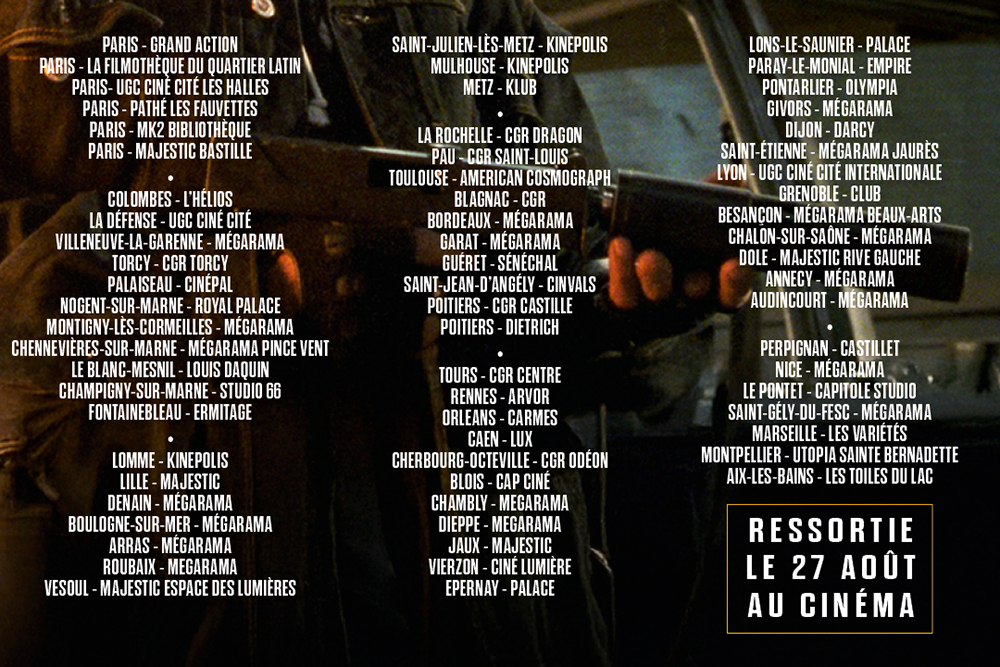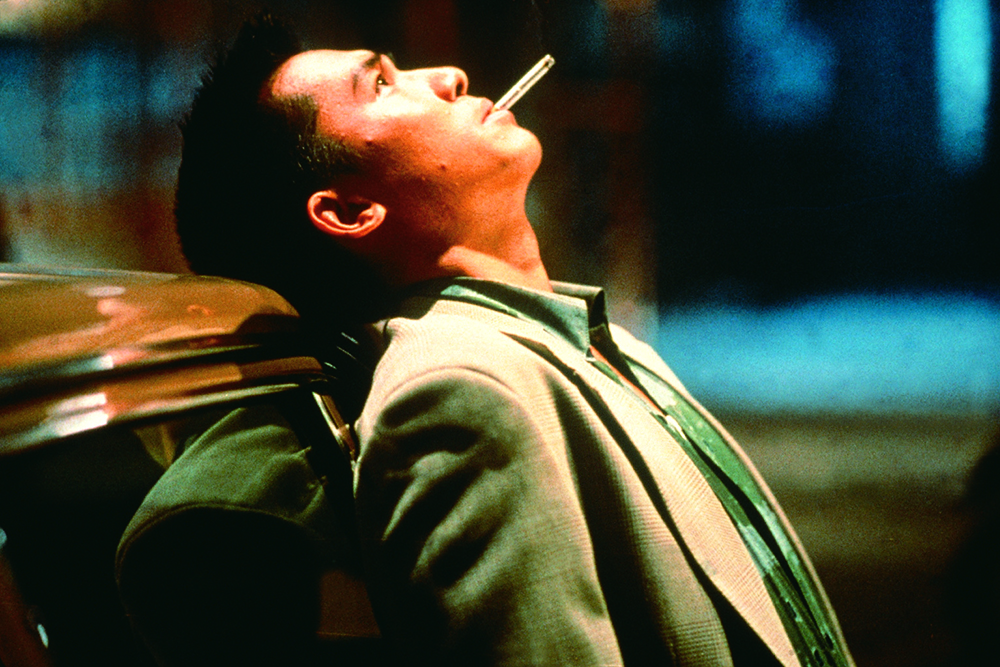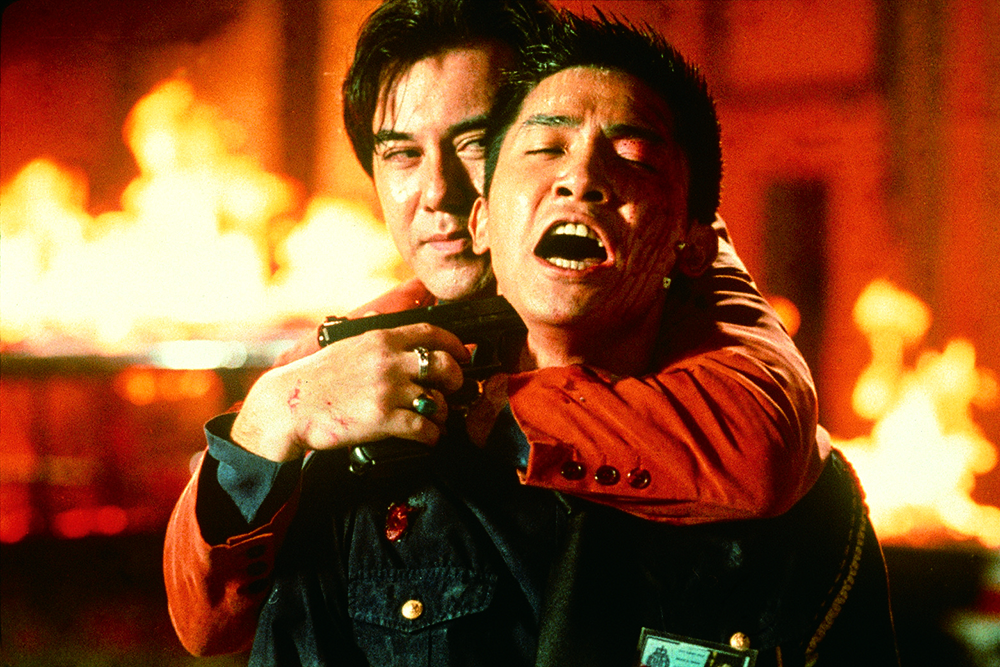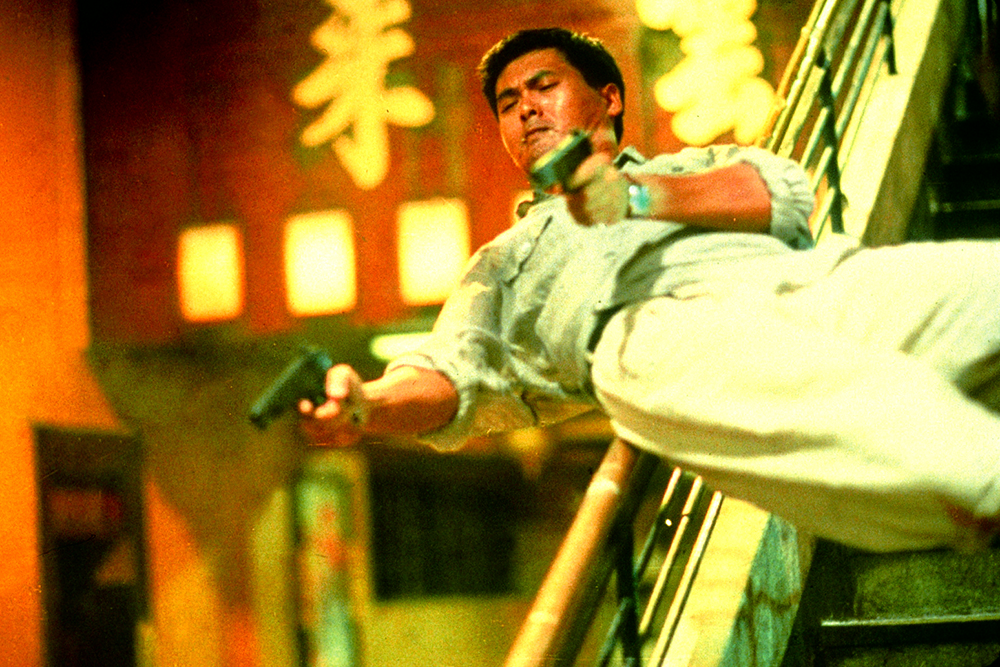Movies - Hard Boiled: John Woo's masterpiece makes a triumphant return in 4K on the big screen in France tomorrow.
By Mulder, 26 august 2025

When we talk about the golden age of Hong Kong action cinema, one title always comes up with an almost mythical aura: Hard Boiled. Released in 1992, this film by John Woo is not only a pinnacle of the genre, it is also the swan song of a filmmaker who, a few months later, would take the plunge into Hollywood. Today, thanks to the acquisition by Metropolitan Films and its label HK Films & Video of the prestigious Golden Princess catalog in partnership with Shout! Studios, French audiences will be able to (re)discover this monument in a restored 4K version that will return to theaters on August 27, 2025. Symbolically, this return is preceded by a tribute at Cannes in the Cannes Classics section, proof of the cultural importance of a film that has continued to influence world cinema.
It is no coincidence that John Woo saw Hard Boiled as a kind of testament to his native Hong Kong, then on the verge of being handed back to China in 1997. Far from glorifying a stylized underworld as in his previous films, this time he chose to celebrate the police, creating a hero in the mold of American figures such as Clint Eastwood in Dirty Harry or Steve McQueen in Bullitt. Thus was born Tequila, played by the charismatic Chow Yun-fat, a tough cop but also a jazz saxophonist, a nod to the filmmaker's passion for music. Opposite him, Tony Leung Chiu-wai played a shady character, both rival and ally, creating an ambiguous relationship that gives the film an unexpected depth behind its spectacular explosions.

The production of the film itself is legendary. The screenplay, co-written by Gordon Chan and Barry Wong, changed direction after Barry Wong's sudden death while working on the film. Initially, the story revolved around a psychopath who poisoned babies—an idea deemed too shocking to appeal to international audiences. John Woo had to rework his script and transformed the project into a fraternal duel between a cop and an undercover agent. Some scenes were improvised based on the available sets, such as the legendary shootout in the tea house, inspired by a staircase discovered at the last minute. Filming was sometimes chaotic, marked by interruptions from local triads demanding their share and complaints from residents exasperated by the gunfire.
But it is undoubtedly the mind-boggling hospital segment that best illustrates John Woo's logistical and choreographic genius. Shot in a former Coca-Cola factory converted into a set, this apocalyptic sequence took 40 days to film and plunged the crew into near-secrecy, with windows blocked to simulate nighttime. Amidst this madness, a five-minute sequence shot—in which the crew changed sets and explosives during a brief passage in an elevator—remains one of the greatest feats in action cinema today. It is said that Tony Leung Chiu-wai was injured in the eye by flying glass and had to interrupt filming for a week before returning to finish his scenes.

Upon its release, Hard Boiled was not a commercial success in Hong Kong, surpassed by Tsui Hark's Once Upon a Time in China II and Stephen Chow's Fight Back to School II. But international critics were immediately enthusiastic. Presented at the Toronto Film Festival in 1992, the film received a standing ovation, with the audience stomping their feet and shouting in front of the screen. In the years that followed, it established itself in the West as one of the greatest action films ever made, acclaimed by the American and European press. The Los Angeles Times proclaimed John Woo “the best director of contemporary action films,” while the Boston Herald called it “a masterpiece, the ultimate action film that makes True Romance look bland in comparison.”
The legend has never faded. Released by Criterion in the 1990s and then included as a bonus feature in the video game Stranglehold in 2007, Hard Boiled has been passed down from generation to generation as an action bible. Its slow motion, doves, and choreographed shootouts inspired Quentin Tarantino and Robert Rodriguez, not to mention Hollywood, which would soon welcome John Woo for Broken Arrow and Face/Off. Even today, critics such as Stephanie Zacharek (Time) and Ed Gonzalez (Slant Magazine) cite it as one of the pinnacles of modern cinema, and Empire Magazine even ranked the character of Tequila as the 33rd greatest hero in cinema.

It is fitting that this French re-release is being inaugurated by Cannes Classics. The festival recognizes in this work a unique blend of chaos and poetry, where every shootout becomes a fresco and every explosion a visual symphony. Seeing Hard Boiled in the theater is to appreciate how John Woo's action is not just muscular entertainment but a true cinematic language. And in an era when Hollywood is churning out interchangeable blockbusters, it is worth remembering that action cinema can also be an art, a field of experimentation, and a form of poetry.
Starting tomorrow, France is once again ready to welcome a film that has lost none of its power more than thirty years after its release. Thanks to Metropolitan Films, HK Films & Video, and Shout! Studios, Hard Boiled is reborn in 4K to remind today's audiences what a true cinematic shock is all about. For those seeing it for the first time, it will be a revelation. For others, it will be a rediscovery, a journey through time when John Woo, Chow Yun-fat, and Tony Leung Chiu-wai reinvented action cinema with bullets, saxophones, and white doves.

Synopsis:
A few days before the handover, an apocalyptic atmosphere descends on the city of Hong Kong. While gang wars rage, Tequila (Chow Yun-Fat), a hot-headed cop, vows to avenge his best friend, who was killed in a shootout in a tea house. He soon crosses paths with a mysterious hitman named Tony (Tony Leung). A strange relationship of rivalry and complicity develops between the two men...
Hard Boiled 4K remastered version
Directed by John Woo
Written by Gordon Chan, Barry Wong
Screenplay by John Woo
Produced by Linda Kuk, Terence Chang
Starring Chow Yun-fat, Tony Leung, Teresa Mo, Philip Chan, Philip Kwok, Anthony Wong
Cinematography: Wang Wing-heng
Editing: John Woo, David Wu, Kai Kit-wai, Jack Ah
Music: Michael Gibbs
Production companies: Golden Princess Film Production, Milestone Pictures
Distributed by Golden Princess Film Production (Hong Kong)
Release date: April 16, 1992 (Hong Kong), June 1, 1992 (United States), June 16, 1993 (France)
Running time: 128 minutes

